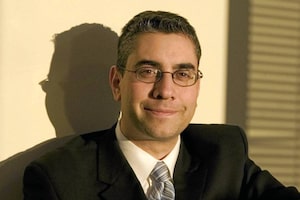The big question these days is: "Do I stick it out in stocks or do I sell some stocks now and raise cash?"
Someone who can help you to navigate these markets in a way that is appropriate for your situation is a valuable commodity indeed.
Before you ask an investment adviser this question, you want to find out if their answer will be filtered through the most dangerous bias in the investment industry.
Here is the issue: If an investment adviser is paid 1 per cent a year to hold stocks, 0.5 per cent a year to hold bonds and 0.25 per cent a year to hold cash, how likely is an investment adviser to suggest selling stocks and holding cash? Is that crazy or is it just me?
Let's look at an example using popular mutual funds. If an adviser recommends Fidelity funds on a low-load basis, it means that they (and their firms) get paid 1 per cent up-front on new assets. On an ongoing basis, in addition to the initial 1 per cent, here are the basics on how they are paid:
If they put funds into stocks, they might recommend the Fidelity Large Cap fund (A class). The total annual fee to the investor is 2.49 per cent a year. The adviser gets paid 1 per cent a year. This fund currently holds $362-million in assets in its A and B class.
If they put funds into bonds, they might recommend the Fidelity Canadian Bond fund (A class). The total annual fee to the investor is 1.58 per cent a year. The adviser gets paid 0.5 per cent a year. This fund currently holds $554-million in assets in its A and B class.
If they put funds into cash, they could use the Fidelity Canadian Money Market fund (A class). The total annual fee to the investor is 0.95 per cent a year. The adviser gets paid 0.25 per cent a year. This fund currently holds $568-million in assets in its A and B class.
Let's come back to the question of the day. Should I be in the stock market, or bonds or cash? Now let's think about how a good percentage of advisers get paid.
Would you be biased in your job if your salary was going to be four times higher to make suggestion A as opposed to suggestion B?
Now let's imagine it is June, 2008. The Toronto Stock Exchange is over 14,000 points. You suggest to your adviser that you are worried about the markets given all of the global turmoil. You think you want to get much more conservative. You ask for advice.
Your investment adviser says "I think that most of the bad news has already come out. I am confident that markets will be strong in the second half of the year." Is that their honest opinion or are they afraid to take a serious pay cut? How angry would you be when your portfolio drops 30 per cent over the next few months, if the advice was biased by how the adviser is paid?
This article is not a knock against professional financial advisers. In fact, stocks do outperform bonds and cash in the long run and are often the best place for your money. However, this is a plea to fix the fee structure of mutual funds. This is also a plea to the public to be willing to pay differently.
I believe the best solution is for clients to pay a fee that is based on the amount of money being managed. This fee shouldn't change based on how a portfolio is managed. Your fee should be the same if your portfolio was all in cash at the moment, as it would be if the funds were all in stocks.
If this was the case, you would probably end up paying more for investments in cash/money market and bond funds than you do today and pay less for stocks. If the fee was the same for all assets, advisers would have no financial bias towards stocks or bonds or cash. They would not be financially penalized by recommending that you have a high cash position today.
This doesn't ensure that you get correct advice, but it helps to ensure that you get the best advice someone can offer you today. A good financial adviser can be extremely valuable in this environment. Now is the time to get the unbiased advice that you are paying for.
Ted Rechtshaffen is president and CEO of TriDelta Financial Partners, a firm that provides independent financial planning advice. He has an MBA from the Schulich School of Business and is a certified financial planner. He was vice-president of business strategy at a major Canadian brokerage firm.
Follow Ted on his blog at The Canadian Financial Planner.
Note: If you are in the Edmonton area, Ted will be doing a retirement seminar for Globe readers on Oct. 13. To find out more click here.
 Ted Rechtshaffen
Ted Rechtshaffen